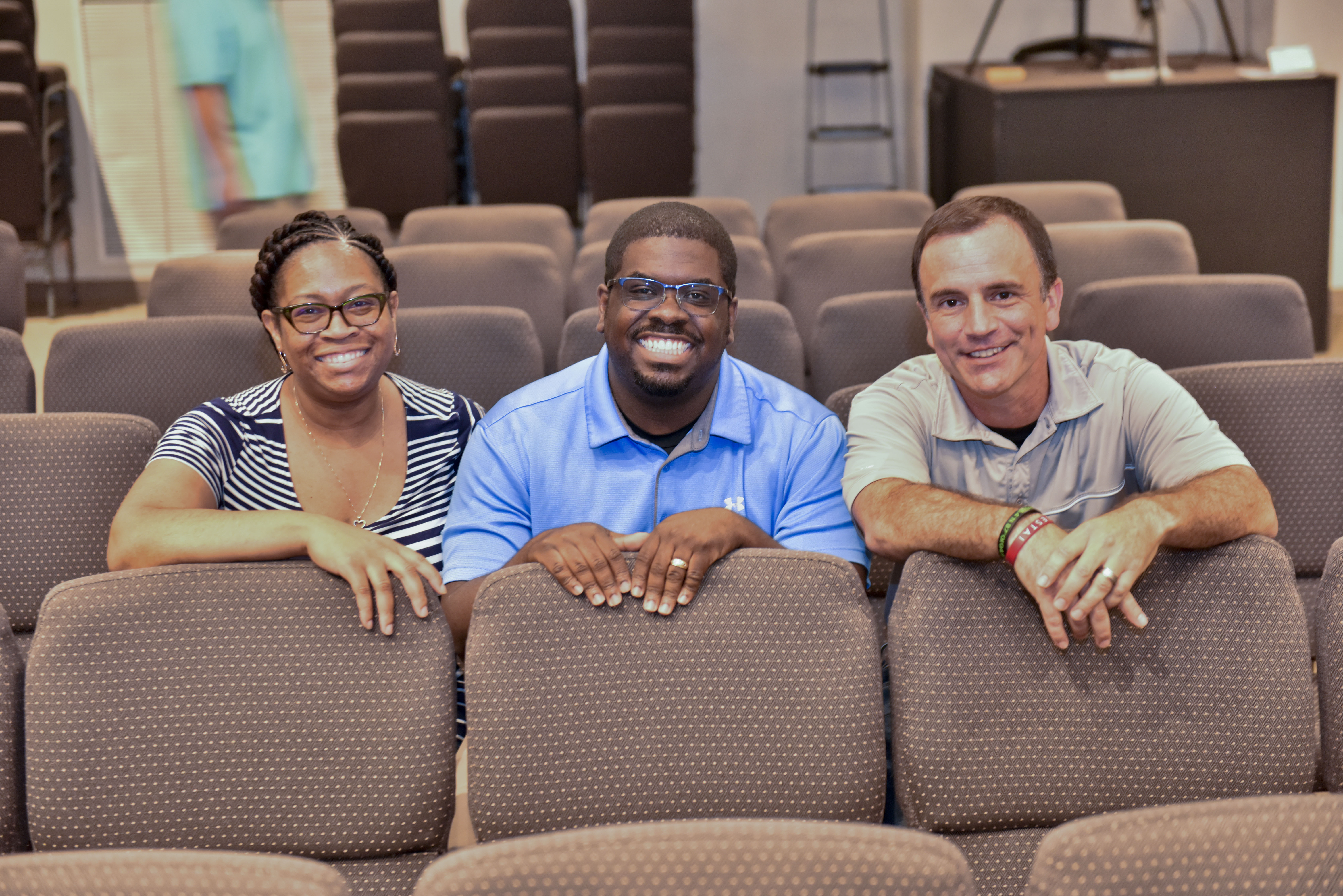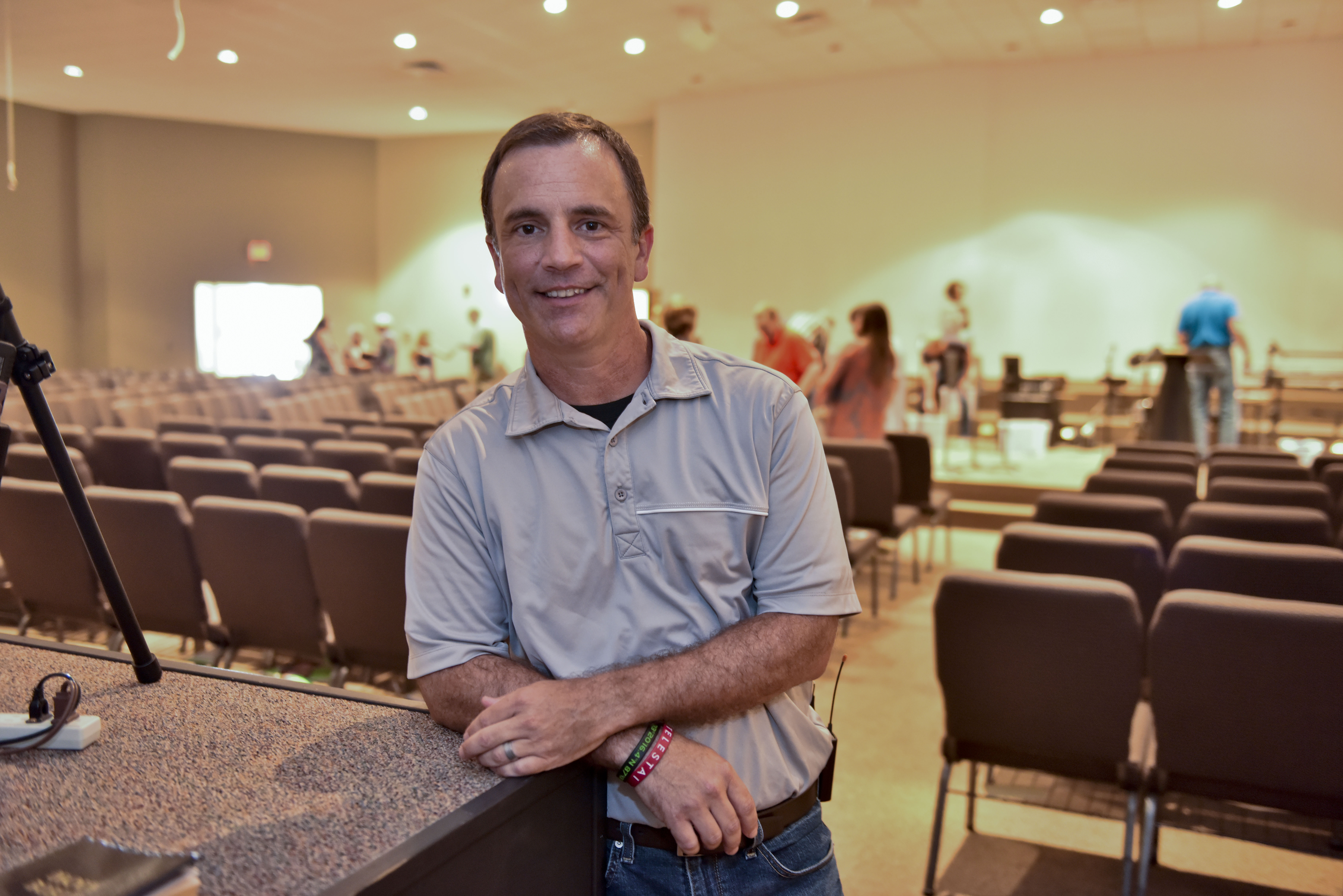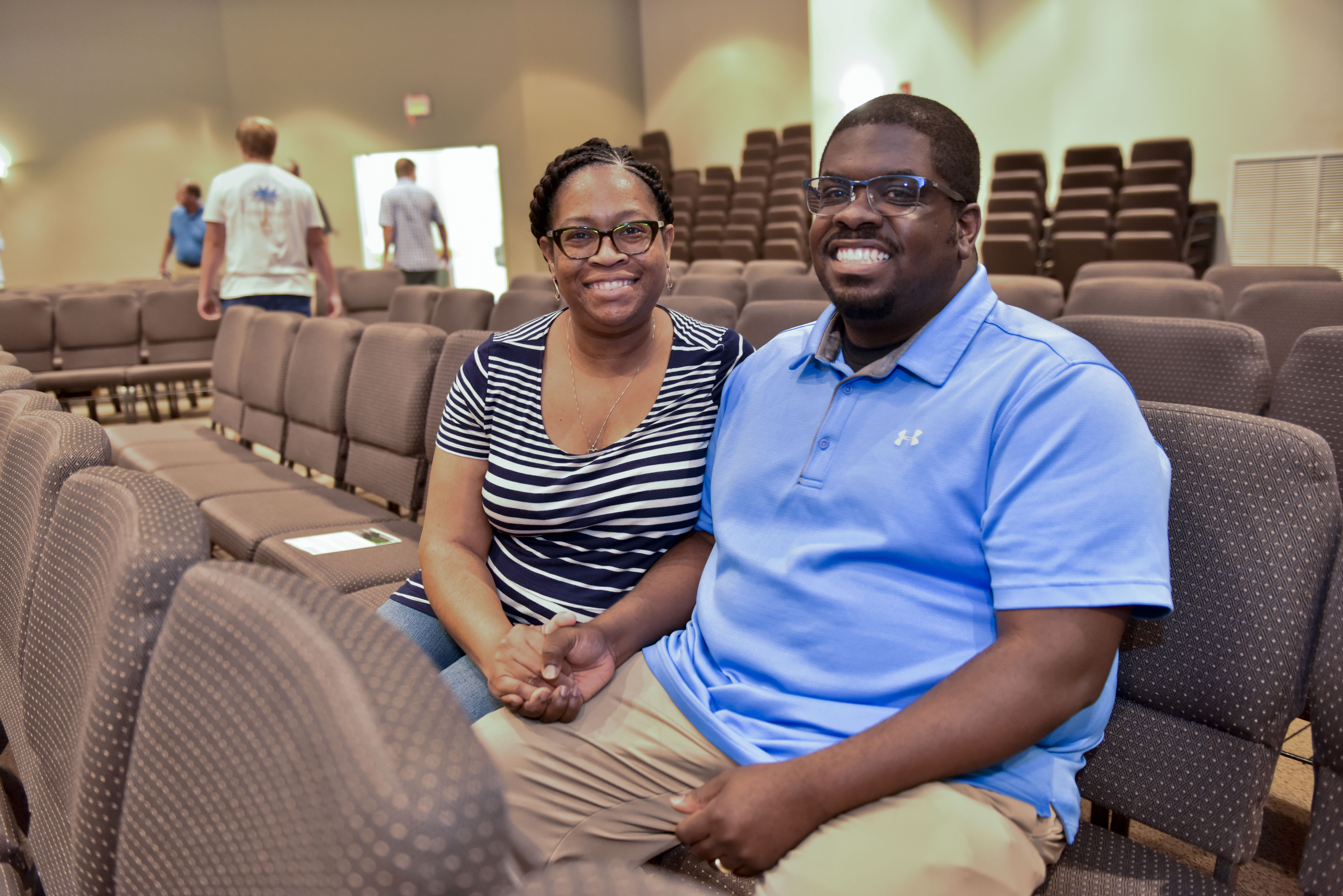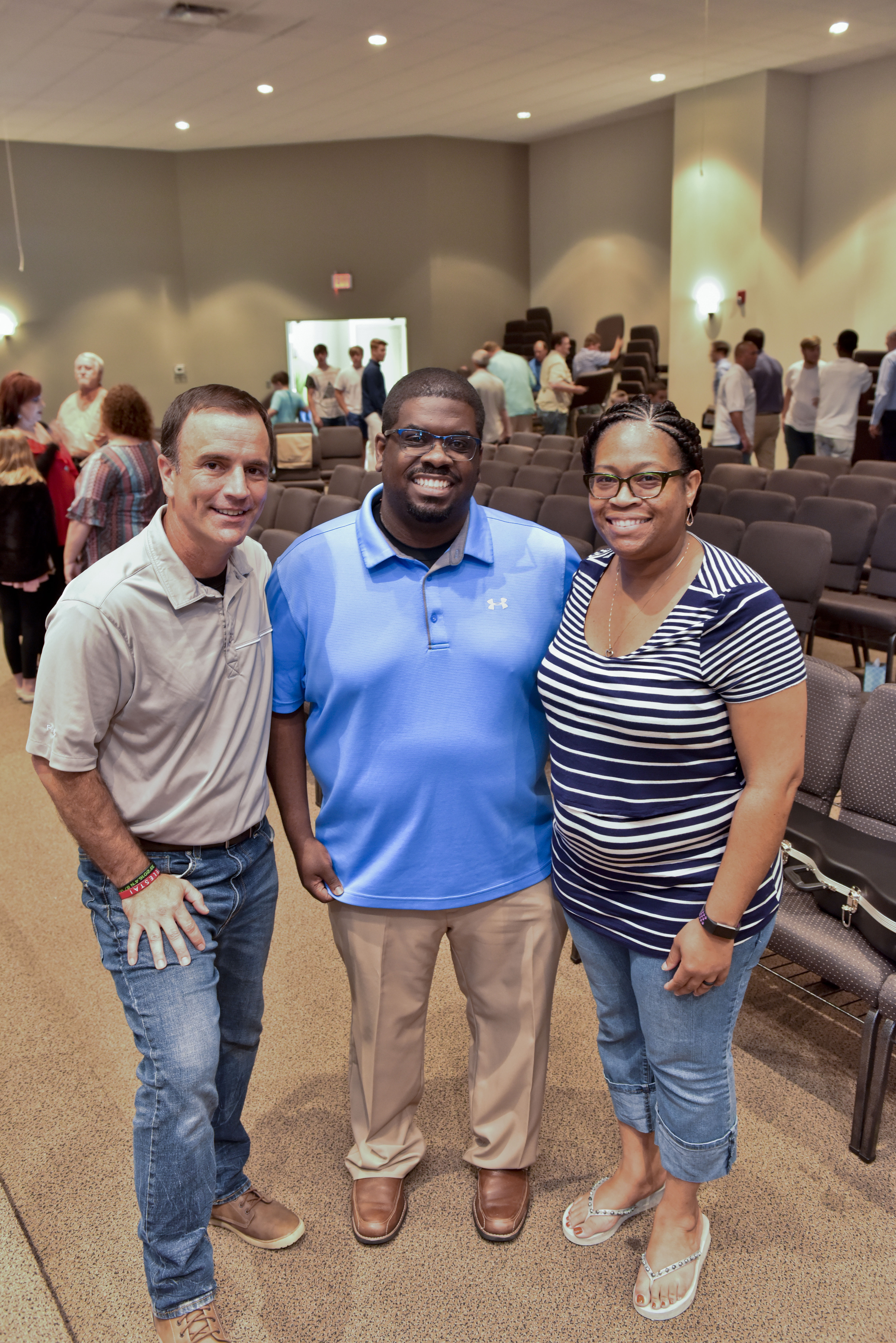
By Ariel Worthy
The Birmingham Times
When Joel Frederick, senior pastor of Grace Life Baptist Church in McCalla, washed the feet of a white police officer and a black congregation member, he wanted to send a message.
“I felt this heavy burden throughout that week,” said Frederick, during a recent interview with the Birmingham Times to discuss the perception that some churches have historically been split across racial lines.
“At some point that Saturday, the Lord spoke to my heart, telling me that I needed to demonstrate humility, repentance, appreciation. I felt convicted that we take people for granted,” he said. “We didn’t really understand where people of color were coming from. Things were so tense that I knew that if I said anything wrong it could cause an issue.”
This was not long after the 2016 shootings in Dallas, Texas, where five police officers were killed, and two separate instances in which black men were killed in police-involved shootings.
Frederick remembers being “wound up tight” during that time, and he knew he had to do something.
Meanwhile, Adrian and Marquita Robinson, two black members of his congregation were running late that Sunday. Frederick welcomed them as they arrived, but the timing was not right for what he had in mind.
“When they came in late, I said, ‘Boom. There they are,’” he remembered.
Once the Robinsons made it to church, Frederick remembers pulling church officers out of their Sunday morning classes to come into the sanctuary: “I said, ‘Everything’s fine. I just need you in the worship center.’”
The pastor went into the church kitchen, filled a water pitcher, and grabbed a basin and a towel. No one knew what he planned to do.
“It was heavy and emotional,” said Frederick. “I could barely breathe.”
That morning, Frederick called a police officer to the front of the church and washed his feet, just as Jesus did with His disciples. After the washing of the policeman’s feet, Frederick called Adrian Robinson forward and washed his feet, too.
Christlike Compassion
“I felt like he was actually sympathetic to what was going on in the [black] community” at the time, Adrian said during the recent Birmingham Times interview.
Frederick’s act of Christlike compassion couldn’t have come at a better time, said Adrian, who had just talked to his then 5-year-old son about the racial strife in some parts of the country.
“I told him, ‘This is how you behave if you get pulled over: say, ‘Yes, sir,” and “No, sir.’ So, dealing with all of that then going to church on Sunday and seeing [Pastor Frederick] do that felt good,” he said.
Still, some in the 1,059-member majority-white congregation were not accepting.
“It opened some doors. It created new tensions, created some dialogues that would not have happened otherwise,” Marquita said. “When I saw the cop up there I was like, ‘Oh, of course the cop is up there. OK, I guess that’s it.’ But when Adrian was called up there, I thought, ‘Oh, OK, this is different.’”
Leaving the Church
During an event at Western Michigan University, the Rev. Dr. Martin Luther King Jr. once said, “The church is still the most segregated major institution in America. At 11:00 on Sunday morning, when we stand and sing, and Christ has no east or west, we stand at the most segregated hour in this nation.” That was in 1963.
Today, the Robinsons, who live in McCalla, are among the many churchgoers opting to worship with people of different races. They have attended Grace Life for three years. Before joining, the family attended a mostly black church in Birmingham.
“There was some guilt,” Marquita said. “We were leaving the black community. Were we abandoning it by worshipping with the majority? I wrestled with that.”
The Robinsons were introduced to Grace Life after attending a neighborhood pumpkin patch where they met Frederick. And joining the church was a bit of a culture shock, Adrian said.
“We were used to traditional gospel music. Here, at Grace Life, we sing contemporary worship music,” he said. “Now, I’m part of the choir, something I never would have done at the other church.”
What made the Robinsons leave their mostly black church to attend Grace Life?
“Most of it was distance,” Adrian said. “It was kind of like driving back to work on Sundays with the distance we had to travel.”
Seeing so many teachers from her son’s school is one reason Marquita wanted to visit.
“My son’s teacher was a member, and the principal of the school at the time was a member,” she said. “I said, ‘Oh, on Sundays I can see the people who help raise my son during the week.’”
Grace Life is also down the street from the Robinsons’ home, and seeing that their children love the church also matters to them.
Look Like Heaven
Frederick said he has longed for the day his church would be diverse.
“To watch God change this place over time, … we prayed for our church to look like our community and, more important, we wanted to look like heaven,” he said. “To me, it’s special to see members of color because it takes grace from God [for people] to leave the world [they’ve] known and come somewhere that [they’re] in the minority.”
Since the foot washing, the Robinsons have been active members of Grace Life. In fact, during the Birmingham Times interview, Frederick asked Adrian if he had accepted his nomination for deacon.
“He got more nominations than anyone to serve as deacon,” Frederick said. “It’s not only a testament to the fact that God changes lives but also a testament to the kind of man that Adrian is.”
Changing Minds
Since Grace Life has become more diverse, Frederick said he has seen people change—even his grandmother: “She was as sweet as she could be, … but when she saw that people were hurt by some of the words she once used, she stopped using those words. I think there’s a learning curve, and when grace is given it’s easier.”
The Robinsons said they had an experience during which a derogatory term was directed toward their son at church.
“He had no idea what it meant. It didn’t even faze him,” Marquita said. “Seeing his reaction made me not want to have the conversation [with him]. I wanted to protect his innocence. If it had affected him, we would have had that dialogue, but I didn’t want him to have a different view of the world.”
Frederick said his church still deals with a lack of diversity within the congregation, but he has appreciated seeing the Robinsons and other black families give grace to white members and be willing to have those hard conversations about race.
“I’ve watched people here stumble over themselves trying to make families of color feel welcome, and it becomes awkward,” Frederick said. “You can try too hard, and that can make people uncomfortable. [People sometimes] say silly things, and you just want to tell them, ‘They aren’t trying to trap you. Just be you.’ There’s a learning curve, but people definitely have to have the desire to learn.”
Still, the pastor said there can be pressure to speak on every issue, which he doesn’t do, but some issues can’t be avoided. For example, the 2015 Charleston, S.C., church shooting that left nine members dead was difficult.
“I grieved that Sunday, not because it was a race thing,” Frederick said. “That was my church family. They were in a prayer meeting. There are times where it’s just irresponsible to not address things. But I think it’s a ploy from the enemy to make people think you have to throw rocks at every barking dog.
“I think the gospel addresses those issues, and my job is to lead people to the gospel. But that Sunday, [during the foot washing], it was an elephant in the room that couldn’t be ignored.”
Having a pastor, one who is not black, address racial issues as a Christian and not as a black or white person means a lot, the Robinsons said.
“What means the most to me are those phone calls: ‘Hey, do you want to go out to lunch?’ ‘Hey, I’d like to talk because I want a better understanding,” said Marquita. “When you are around people who really want to know you as people, those things mean more to me.”
Headline updated at 1:46 p.m. to reflect that Robinson is a member of the church.








